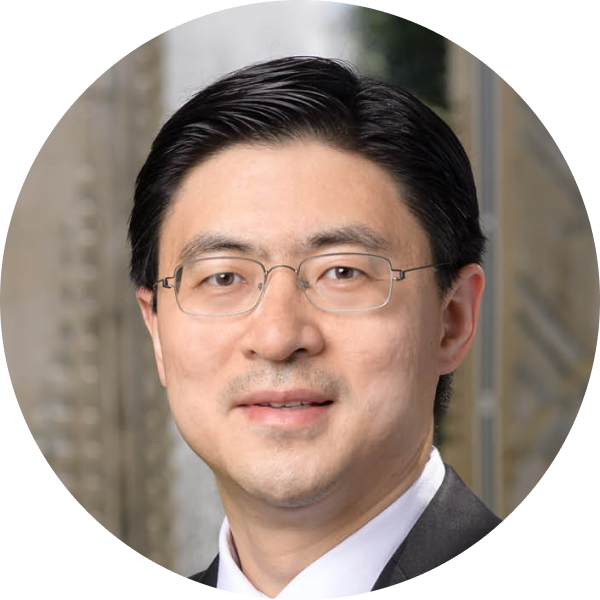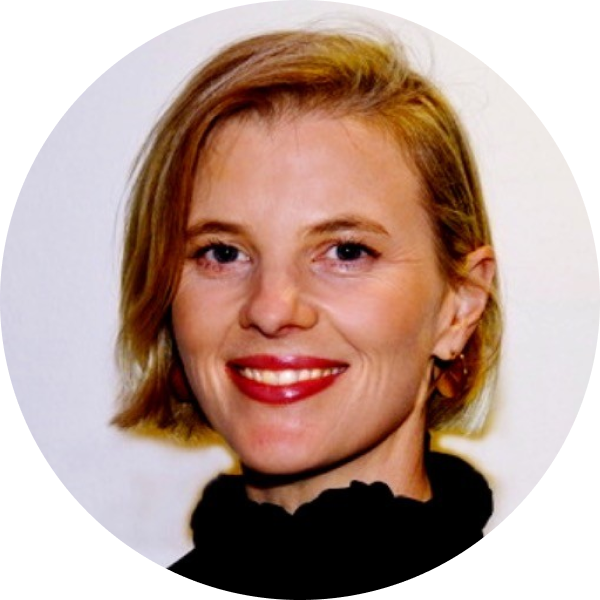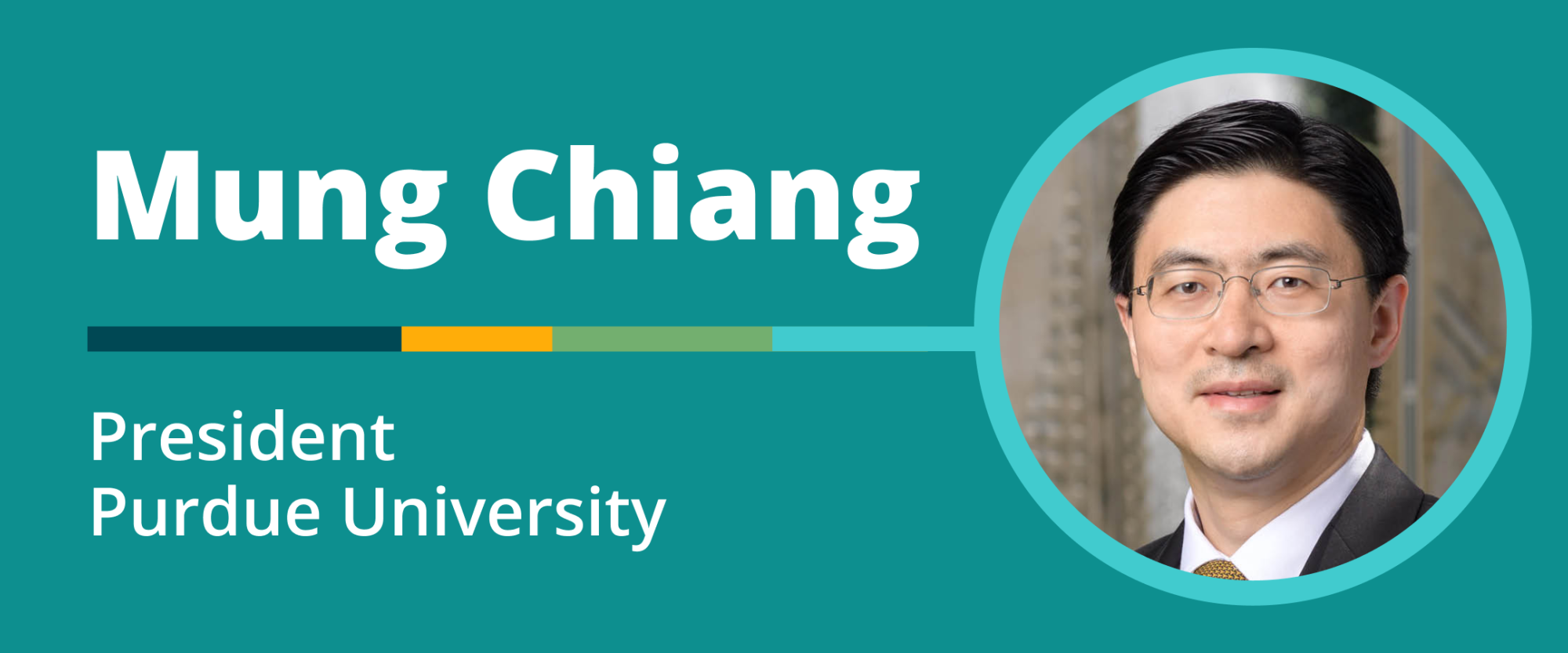Purdue University, a charter member of the University Innovation Alliance (UIA), has long been a leading advocate for student success. It’s been over three years since we featured this institution on the Weekly Wisdom series in the form of Purdue University Global. This time, we sat down with President Mung Chiang on the Innovating Together Podcast to talk about a prestigious R&D grant from the U.S. Department of Commerce, the art and skill of making consequential decisions, fund raising through team building, and the importance of patient listening.
Public University-Federal Government Partnership
We spoke with President Chiang on Purdue’s first day of classes, a proud and exciting moment for any higher education leader. In addition to the start of the academic year, he was also celebrating his institution’s recent win of this year’s CHIPS award, a federal grant awarded to fund semiconductor technology research and development:
“The CHIPS program office, under the U.S. Department of Commerce, approved the application from SK Hynix with $450 million of grant and up to $500 million of loan to support their AI memory chip advanced packaging fabrication facility at Purdue. We are very excited, as this will become the largest such facility located at a university and the largest single economic development deal in the history of State of Indiana.”
As Purdue’s leader since 2023, and as former dean of engineering, he had a clear understanding of the programs and infrastructure needed to make the CHIPS award a reality, yet he shared the credit:
“We're very appreciative of Commerce Secretary Raimondo's support of this initiative because, one, it completes a major step in the supply chain for semiconductor as the foundation for national economic and job security in the United States. Two, it's all about AI memory and SK Hynix, the global leader, supplying companies such as Nvidia. And three, this is going to be great for our students and faculty, not only in microelectronics semiconductor, but anything that's physical AI related is going to be fantastic opportunities for them as well. Whether it's Senator Young, Governor Holcomb, the whole team here at Purdue, we've worked very hard through the past two years to get to this point. I will share that sense of joy and pride along with the team. It takes a village. We've got a very special village, whether it's workforce development in semiconductor or research innovation and capacity in that area. And frankly, many other areas as well. I always say, ‘Well, let's keep it focused and keep winning.’"
Leadership Celebrating Institutional Success
Some of our guests talk about aspiring to top-level leadership from early in their career, while others, like President Chiang, admit that leadership roles found them:
“I work in the education sector, I was always thinking I'm going to do research, maybe teach some MOOCs, and do startup companies based on the research and innovation from my own research lab. And I enjoyed all of those so very much. And then somehow accidentally, I got sucked into the dark side of university administration. I guess I also enjoy celebrating other people's success and having excellence at scale. A unique institution like Purdue gives me an incredible platform to encourage, amplify, and celebrate other people's success. And frankly, it's a whole lot easier to celebrate other people's success than to create my own. I say, ‘Well, I’ll just read my emails today about good news done by colleagues, and all I need to do is send an encouraging note saying, “What a fantastic job!”’ It's a good life, I'm telling you.”
Obviously, President Chiang understated his role as a university leader, considering some of the insights he’s gained at Purdue, Princeton, and the U.S. State Department:
“Consequential decisions can irritate people. I learned that in Washington DC, and also in my role as a servant administrator to my academic colleagues. The best way to make consequential decisions is when a leader has the ability to get the right team together around him or her. Mitch Daniels, my predecessor who sat in this chair for the past ten years, did that with fantastic efficacy. He served in so many examples the kind of leadership that demonstrates courage in making decisions, such as safely reopening the campus back in August 2020. My remarks at Purdue’s spring commencement earlier this year reflected on that decision to reopen, and being prepared to have a plan B if that's proven not to work. And thanks to the great preparation and all the community members, especially all the students who lived out the Protect Purdue Pledge, we were able to pull that off and did not need to get to plan B.
“A leader faces a lot of surprises every day. But if you have a north star and the right team to help debate and then make the right choices, whatever wisdom and courage that might take can minimize the negative impact of any surprises.”
How to “Run” a Successful Institution
President Chiang spoke warmly about Purdue Day of Giving, obviously one of his favorite campus events:
“Towards the end of April, we usually have a 24-hour marathon fundraising exercise. And we deeply appreciate every single gift, large and small, but really it's the total number of gifts that count in my mind more than anything else, including those by thousands of current students and tens of thousands by alum, fans, friends, and families. And my inauguration as president was the 2023 Day of Giving. It was a very simple but heartwarming ceremony. There's no speech, no cap and gown. I ran around campus with students to raise funding for student clubs, and then at the residence we had a barbecue for the community members with young families. And that was the totality of the inauguration. I am just happy that I was able to finish running without losing my breath completely. Some of these students, they run very fast.
“It wasn’t a race. This is more like dozens of students and I would run together, and then we do a relay, and other faculty, staff, and alum would run as well. I think the students were being very kind to slow down and let me run closer to the middle of the pack. That was a lot of fun, and we did that Day of Giving a run yet again this past year. Somehow, either I'm getting older and not able to run as fast or they are running faster than last year, but we'll see how long this can last.”
Advice for Aspiring Higher Ed Leaders
We always like to end our Weekly Wisdom conversations with some actionable takeaways. One is asking our guest to share the best career advice they’ve received. President Chiang offered this helpful paradox:
“After a fundraiser event at a prior institution, an alum said to me, ‘Mung, what you just said was fantastic. That's exactly what we needed. Now, hurry up and be patient.’ I said, ‘What? Are those two supposed to be contradictory? I guess they don't have to be.’ And then, I was seeking advice from retired presidents of major institutions, and the first thing one of them said to me was, ‘Be patient.’ I guess I'm not a patient person intrinsically, and as I learn and pivot in many ways every day, I try to be patient. How do you do this ‘hurry up and be patient’ at the same time? I'm not sure if I have the answers.”
When asked for career advice, he frequently tells aspiring leaders:
“It's the who before the what. When I was doing startup companies, my mentors and board members would say, ‘Look around at the people you want to work with. Don't worry first about what are you going to work on together.’ And it’s the same thing in Washington DC, the same thing in higher education leadership. It's always the who before the what. The what zigzags all the way, and you've got to have a plan and be ready to pivot by listening to what's going on out there and reading the feedback. But the who is going to guarantee that every day, every night, you've got the right team to work on that. By having that outstanding group of colleagues, I get to listen to what they all have to say. Again, I'm not a particularly patient listener. But listening to the different and sometimes conflicting opinions coming from different members of the team always enriches the texture of any decision.”
President Chiang also gave us a reading recommendation supporting that advice:
“Good to Great, this book by Jim Collins, I enjoy reading that a lot, and it has actually a couple of chapters elaborating in great, useful details this notion of who before what. There are many other great books that I wish I had the time to read but, well, we've got to finish reading emails first!”
Note: This interview in the Weekly Wisdom Series originally aired on September 9, 2024 as part of the University Innovation Alliance’s Innovating Together Podcast, appearing live on YouTube, Facebook, Twitter, and LinkedIn.
Resources Mentioned in This Episode
- Mung Chiang
- Purdue University
- Purdue University Global ("A Roadmap for Remote Learning: A Conversation With Frank Dooley, Chancellor, Purdue University Global," UIA, 3/18/21)
- Mitch Daniels (former president of Purdue University 2013-2022)
- Student success ("Scaling Student Success: Insights From Bridget Burns on Ed on the Edge," UIA, 6/13/24)
- CHIPS award (the federal government’s Creating Helpful Incentives to Produce Semiconductors initiative)
- SK Hynix (a South Korean supplier of dynamic random-access memory chips and flash memory chips; one of the world's largest semiconductor vendors)
- Good to Great: Why Some Companies Make the Leap...And Others Don't by Jim Collins
Bios of Guest and Co-Hosts

Dr. Mung Chiang is the 13th president of Purdue University and the Roscoe H. George Distinguished Professor of Electrical and Computer Engineering. He was previously the John A. Edwardson Dean of the College of Engineering, executive vice president for strategic initiatives at Purdue University, and the Arthur LeGrand Doty Professor of Electrical Engineering at Princeton University. Dr. Chiang founded the Princeton EDGE Lab in 2009, followed by several startup companies and industry consortia in edge computing. As the Science and Technology Adviser to the U.S. Secretary of State in 2020, he initiated federal tech diplomacy programs. Currently he serves on the inaugural board of the U.S. Foundation for Energy Security and Innovation and several corporate and nonprofit boards. President Chiang received his BS (1999), MS (2000) and Ph.D. (2003) from Stanford University, and an honorary doctorate (2024) from Dartmouth College. For his research in communication networks, he received the NSF Alan T. Waterman Award (2013), as well as the IEEE Kiyo Tomiyasu Award (2012), the IEEE INFOCOM Achievement Award (2022), and a Guggenheim Fellowship (2014). He was elected to the American Academy of Arts and Sciences (Class of Mathematical and Physical Sciences 2024), the National Academy of Inventors (2020), and the Royal Swedish Academy of Engineering Sciences (2020).

Co-Host: Bridget Burns, Executive Director, University Innovation Alliance
Dr. Bridget Burns is the founding Executive Director of the University Innovation Alliance (UIA). For the past decade, she has advised university presidents, system chancellors, and state and federal policy leaders on strategies to expand access to higher education, address costs, and promote completion for students of all backgrounds. The UIA was developed during Bridget’s tenure as an American Council on Education (ACE) Fellowship at Arizona State University. She held multiple roles within the Oregon University System, including serving as Chief of Staff and Senior Policy Advisor, where she won the national award for innovation in higher education government relations. She was a National Associate for the National Center for Public Policy and Higher Education, and has served on several statewide governing boards including ones governing higher education institutions, financial aid policy, and policy areas impacting children and families.

Co-Host: Sara Custer, Editor-in-Chief, Inside Higher Ed
Sara Custer became Inside Higher Ed’s editor-in-chief in March 2024 after serving four years at Times Higher Education. At THE, she worked across departments to launch and grow the Campus platform, and then lead its editorial team. Prior to that role, she served as digital editor, helping to launch THE’s newsletter strategy and overseeing daily, weekly, and monthly publications. Ms. Custer was previously editor and senior reporter at The PIE News, a website and magazine covering the international education industry. She grew up in Cushing, OK., and earned a B.A. in English literature from Loyola University Chicago and an M.A. in international journalism from City, University of London. She has covered global higher education as a journalist for more than five years.
About Weekly Wisdom
Weekly Wisdom is an event series that happens live on YouTube, Facebook, Twitter, and LinkedIn. It also becomes a podcast episode. Every week, we join forces with Inside Higher Ed and talk with a sitting college president or chancellor about how they're specifically navigating the challenges of this moment. These conversations will be filled with practicable things you can do right now by unpacking how and why college leaders are making decisions within higher education. Hopefully, these episodes will also leave you with a sense of optimism and a bit of inspiration.
Rate, Review & Subscribe
Learn why hundreds of people have rated this new podcast 5 stars! Please join others and rate and review this podcast. This helps us reach and inform more people -- like you -- to help increase the number and diversity of college graduates in the United States.
Click here, scroll to the bottom, tap to rate with five stars, and select “Write a Review.” Then be sure to let us know what you loved most about the episode! Also, if you haven’t done so already, subscribe to the podcast. We’ll be adding a bunch of bonus episodes to the feed and, if you’re not subscribed, there’s a good chance you’ll miss out.

